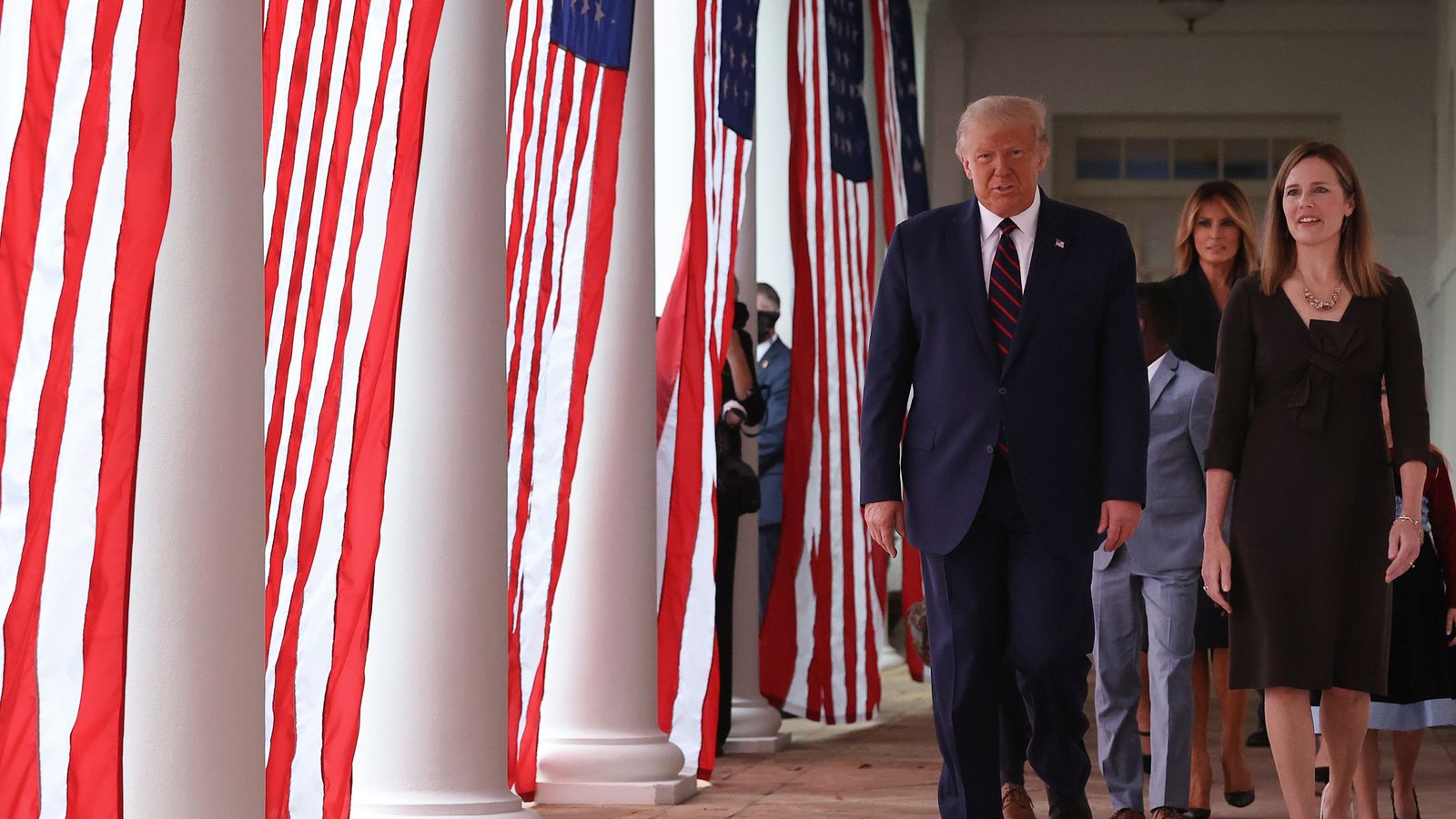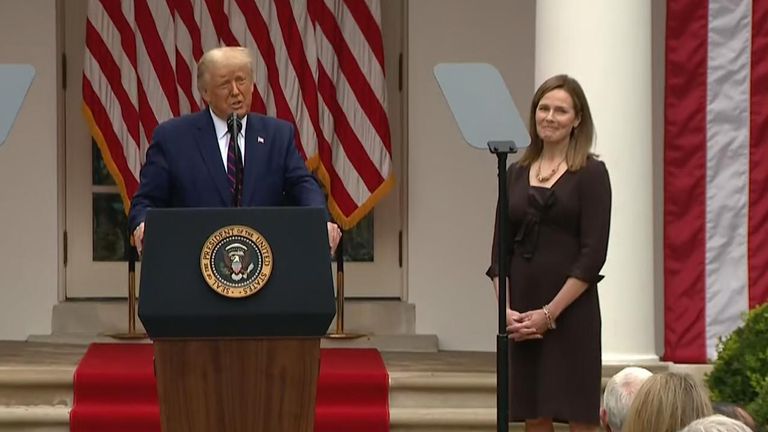It is the softer-toned Trump who comes out on occasions like this.
The US president seemed hushed, almost intimate, as he warmly introduced his nominee – “one of our nation’s most brilliant legal minds” – into the approving elegance of a Rose Garden gathering.
A president doing parent, like he felt Amy Coney Barrett needed reassurance amid the stillness of polite celebration they all knew wouldn’t last. It didn’t.
The president and his pick had barely parted company when the assault on her, her nomination and its timing, was in full war cry.
Ms Barrett will bring change to the court and country, no doubt. The nomination of the 48 year-old mother of seven brings with it considerable controversy.
Assuming she is confirmed on the bench of the US Supreme Court, she will tilt its political balance to the right, as one of six conservative justices versus three liberal.
At any time, it would have huge implications for the country’s highest court and how it shapes the lives of Americans. At no time, perhaps, like now – a month before the election.
The career record of the federal appellate judge demonstrates conservative credentials on contentious issues like gun control, immigration and access to medical care. A devout Catholic, she is lauded by anti-abortionists for her pro-life convictions.
“The dogma lies loudly within you,” is a slogan famously associated with Ms Barrett. The phrase was used during her 2017 Senate confirmation hearing to become a judge on the 7th Circuit Court of Appeals by Democratic Senator Dianne Feinstein.
It catapulted Ms Barrett to wider national prominence and stirred religious conservatives who viewed the episode as an example of anti-religion bias.
There will be controversies to come.
Ms Barrett will have a lifetime’s appointment to a right-wing bench with which to wield influence over generations who don’t necessarily share her politics or life choices.
Vice-presidential candidate Kamala Harris was among those who claimed that Amy Coney Barrett’s presence on the Supreme Court would threaten a woman’s right to abortion in the United States, tweeting:
“They intend to destroy the affordable care act and overturn Roe (the ruling that legalised abortion). This selection would move the court further right for a generation and harm millions of Americans. I strongly oppose Judge Barrett’s nomination.”
Opinion polls indicate that most members of the public believe a replacement Supreme Court justice should wait until after the election.
Republicans, however, are intent on pressing ahead.
A confirmation hearing is due to start on 12 October before the Senate Judiciary Committee and Republicans believe they have the numbers in the bag to wave her through in a vote on the Senate floor before election day on 3 November.
Therein lies a concern for Donald Trump’s opponents. They sense he is scripting a stitch-up around his Supreme Court nominee.
:: Subscribe to Divided States on Apple podcasts, Google Podcasts, Spotify, and Spreaker
The president has routinely branded postal votes a “scam” and “hoax”, without evidence. Just last week, he predicted that uncertainty around the outcome would mean the election ending up in the Supreme Court and so a replacement 9th Justice would be needed “quickly”.
Democrats joining the dots scream that it presents the picture of a president who won’t accept a loss at the polls but who would steer a legal challenge towards a conservative-leaning Supreme Court in the expectation it would declare him winner, whatever the democratic will of the American people.
All of this amid his refusal to guarantee a peaceful transfer of power after the election.
Senior Republicans offer reassurance that the president will indeed agree to an orderly, peaceful transfer of power if he loses in a “free and fair” election. And yet it’s a qualification that doesn’t sit easily with Donald Trump’s framing of the election so far – he consistently undermines its legitimacy and has sought to sow distrust in the system, claiming the process is “rigged”.
On one view, the president is creating distraction to deflect from his performance on coronavirus (more than 200,000 US deaths), a tanking economy and opinion polls that consistently show him behind. To that end, discussion about a new Supreme Court nominee can open up a new campaigning focus.
His Democratic opponents take a different view. They see his manoeuvring as nothing less than a full-scale autocratic assault on democracy, a battle plan crafted to keep him in office and consolidate Republic power in the Supreme Court.
The question of where and when the battle ends Is a question that remains open. So does the matter of “how”, in a country darkly contemplating all possibilities.

